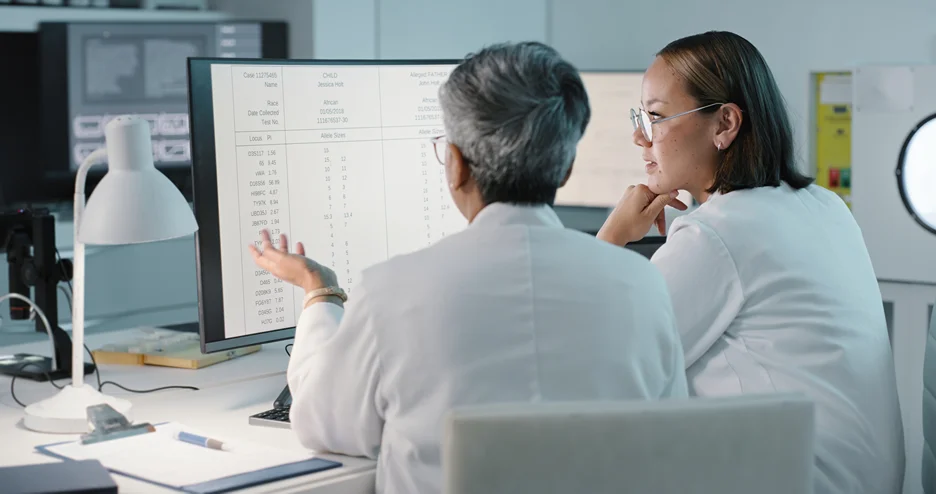Accessing and releasing the medical records of deceased patients is a sensitive issue that healthcare providers and family members sometimes struggle with. On one hand, medical records contain private health details and must be protected under privacy laws even after death. On the other, families may need access to records for legal closure, heirlooms of their loved one's life, or genealogy purposes.
This article aims to provide clarity on the legal guidelines and key considerations surrounding the release of deceased patients' records.

Medical records refer to documentation of a patient's health history and care. They include details like diagnoses, treatment plans, discharge summaries, laboratory test results, and billing documents. As such, they act as crucial tools in the continuity of care.
For a living individual, they have a right to access their medical records, including requesting amendments. However, upon death, a personal representative steps in. A personal representative is usually the executor, administrator, or other person with legal authority to act on behalf of a deceased individual or their estate. They can give or deny permission to release medical records on the deceased's behalf.
The Health Insurance Portability and Accountability Act, known as HIPAA, sets national standards protecting personal health information. Even after death, HIPAA requires covered entities like hospitals and doctors to protect a deceased individual's identifiable health information as protected health information (PHI) for 50 years.
A death certificate is vital in establishing someone's death. It proves the personal representative's right to act and allows them to request records. Sometimes a legal authority document like a will or court order proving executorship is also needed.
Executorship refers to legal authority given by a will or probate court to handle someone's estate after their death. Proving executorship through documentation gives authority to access deceased's financial or medical matters. Without it, records may need approval from other family members too.
Many different parties may be involved in the release of medical records of deceased patients. Navigating requests and sharing protected health information legally requires coordinating between various stakeholders including:
| Stakeholder | Role |
| Covered entities and personal representatives | Work together to legally release records to proper requestors. These entities include doctors' offices, hospitals, nursing homes, pharmacies, health insurers that must comply with HIPAA. |
| Medical examiners | Investigate sudden, unexpected, suspicious, or violent deaths. Their autopsy records help determine cause of death and may need to be subpoenaed. |
| Funeral directors | Families plan services but also receive medical documents like death certificates for burial permits. They often coordinate with facilities on the deceased's final records. |
| Privacy officers | Ensure healthcare providers follow privacy laws and proper protocols when dealing with requests involving deceased patients. They help navigate complex cases. |
Psychotherapy and substance abuse records demand stricter consideration due to extra privacy protection. Providers usually require explicit authorization or a court order before releasing.
Historical studies researching deceased populations or genealogy record requests weigh individual privacy with advancing public knowledge and may be fulfilled after verification.
HIPAA protects deceased patients' PHI for 50 years after the date of death or the records' creation. After this, covered entities have more flexibility with record disclosures for research or historical purposes.
Record retention policies govern how long facilities must keep records on-site vs archiving. Knowing local policies is important when making requests years later.
Healthcare compliance professionals help providers navigate medical record transfers to other care teams, storage facilities or living relatives according to regulations and best practices. They prevent issues.
Requesting late relatives' records can bring confusion due to outdated information, misplaced documents or staff turnover. Patience and double-checking facts is prudent.
Frustrating cases include suspicious deaths under investigation, unclear family dynamics, or missing executorship proof, warranting legal or professional guidance.
Previous physicians often require written requests from authorized requestors due to privacy laws before sharing records elsewhere. Primary doctors usually maintain comprehensive histories.
Next-of-kin like adult children and siblings have rights to notify, access or object to disclosures to others. Current spouses or partners usually qualify too unless separation is involved.
Showing empathy and finding subtle ways to respect bereaved family members' privacy especially during devastating times is considerate.
Guidelines allow families to access records for non-therapeutic purposes like settling estates or genealogy projects once identity and relationship are verified by providers.
While spouses automatically receive updates, other relatives may require documentation of family relationships or appointment as personal representatives.
Requesting medical records of deceased individuals requires navigating specific procedures to obtain protected health information legally. The practical steps that family members and personal representatives typically follow include:
Remembering that medical records involve people's privacy sensitively balances families' need for closure, continuity of care, and justice. Patience and proper legal process help navigate the system. Ultimately, deceased individuals' dignity and survivors' well-being matters most.

For families seeking access to a late loved one's important medical documents, navigating the process can feel difficult. However, with careful preparation and understanding of guidelines, authorized personal representatives can obtain protected health information legally from healthcare providers.
Calysta EMR makes this process seamless for medical practices by providing compliant release of information capabilities in our electronic medical records system. We securely store records, identify proper requestors through integrated identity verification, and facilitate approved disclosures - taking the paperwork burden off providers.
If you find yourself in the difficult position of needing to gain closure by requesting records of a deceased individual, be sure to contact the deceased's healthcare providers directly. Come prepared with the necessary documentation, such as a death certificate, proof of your relationship, and your purposes for requesting access. Providers using Calysta EMR can swiftly honor approved requests thanks to our streamlined privacy and release functionality.
With patience and diligence, the guidelines for accessing protected health details of departed loved ones can be navigated respectfully and lawfully on all sides. For more information, get in touch with one of our specialists today!